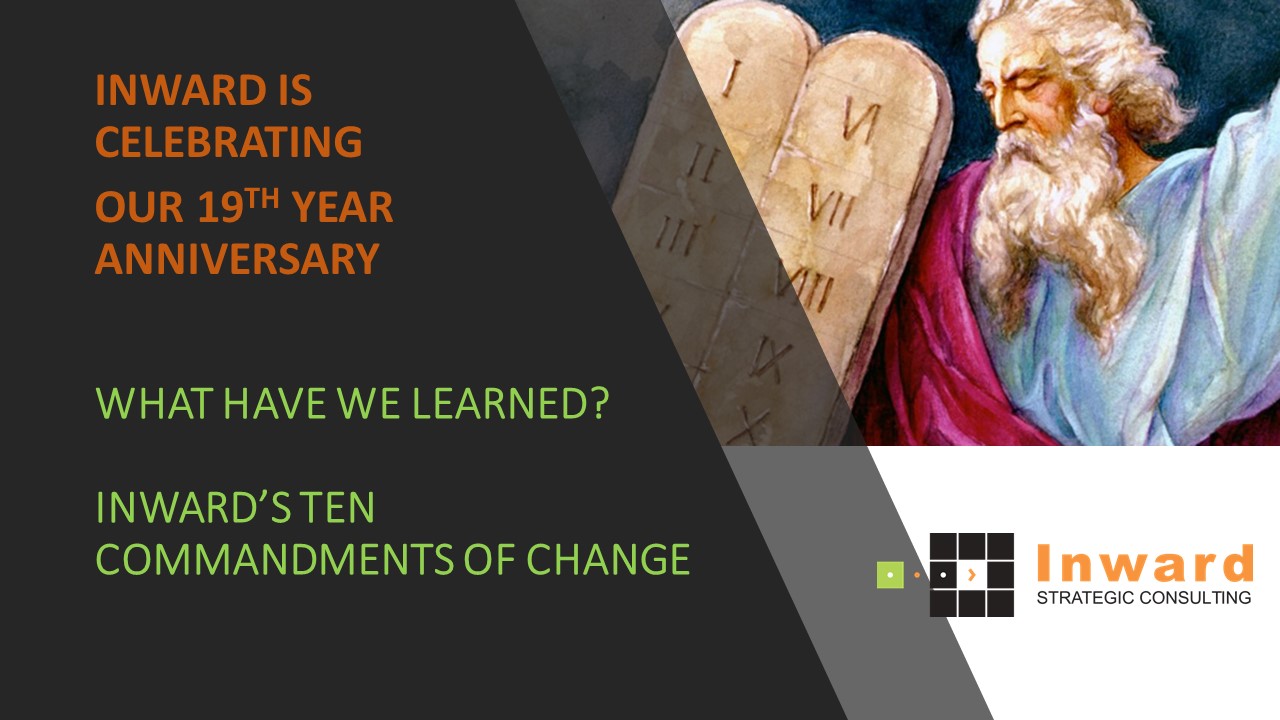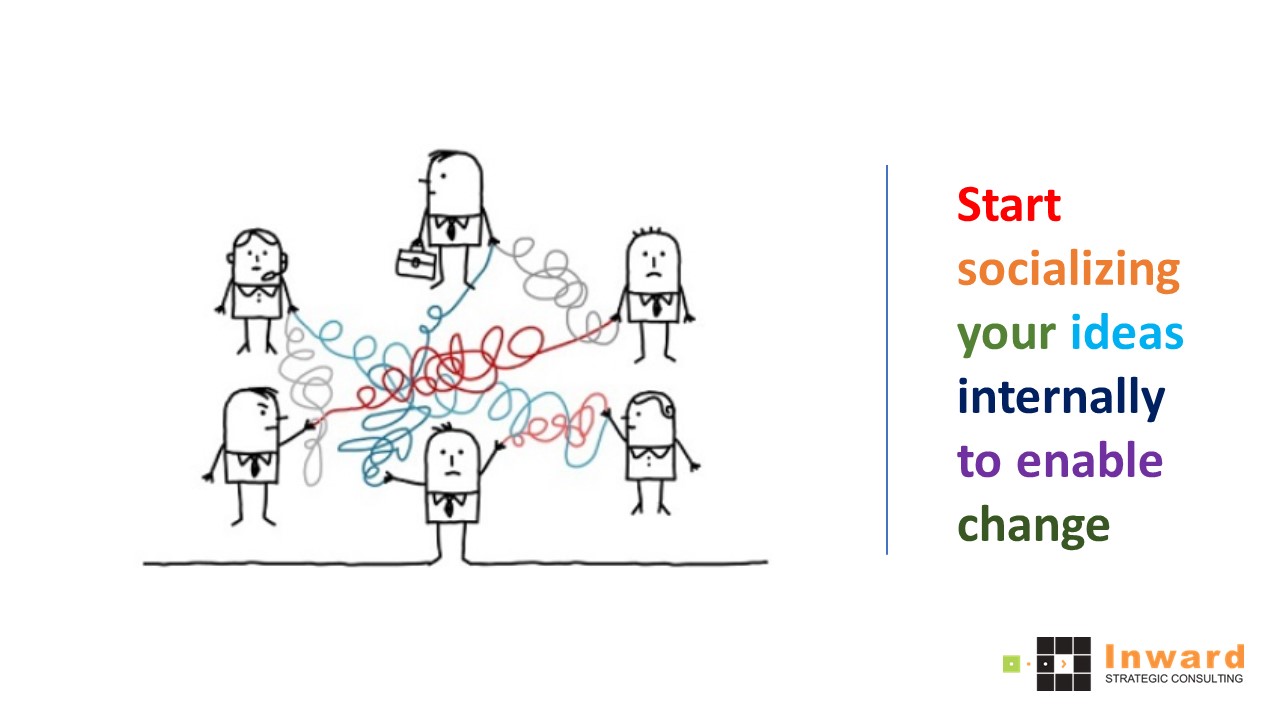Inward Blog
Viewing entries tagged with 'organization'

Chick HERE to see what we have learned over 19 years
October 30, 2017
It was 19 years ago that we first started building our own brand identity. At the time, many companies were conducting large-scale process redesign and reengineering programs. Reportedly, close to 50% of those programs were failing, and 80% of the credit was given to reasons related to company culture clashes. Our thinking? What could we do to help organizations deal with enterprise change, culture realignment and internal branding?
Posted by Allan Steinmetz at 1:00am
change management, internal communications, social media, Millennial's, transformation, organization

Click Here To Learn about accepting and embracing change internally
August 16, 2017
Do you want to improve internal buy-in for major change initiatives? Start socializing your ideas internally.
Posted by Allan Steinmetz at 1:00am

Accountability Drives Commitment And Performance
June 25, 2015
Commitment and accountability go hand in hand. In order to have a culture of high engagement and performance, all team members need to be accountable to each other. Notice I said ALL team members. Whether in a leadership role or not, everyone on a team must be accountable to each other for their part in achieving the vision, strategy, goals, and objectives. The greatest attribute of effective leadership is leading by example. To create an inspired and engaged workforce, leaders must be willing to be held accountable to those they lead, while holding others accountable for their commitments.
Posted by Rick DeMarco at 11:00am
Accountability, Leadership, High Performing Organizations, Employee Engagement, Accountability Partners

What Is The Most Important Role In An Effective Organization?
June 4, 2015
Let me cut to the chase and then explain. Every role within an organization is equally important. To be clear, I’m not talking about which role carries the most responsibility, which one has the most exposure, or which one establishes vision and strategy. I’m talking about which role is most important to the success of an organization. For an organization to reach its vision and goals, EVERYONE has to do their job. Senior leaders can develop the most compelling strategy and vision in their industry, but successful execution of that strategy depends on everyone in the organization buying into that vision. Creating a culture of high employee engagement requires everyone to do their job and do it well. It does no good to develop and manufacture a great product if the sales people don’t sell it, the logistics team doesn’t deliver it, and the accountant doesn’t bill and collect payment for it.
Posted by Rick DeMarco at 11:00am
Effective Organization Management, Employee Engagement, Cultural Alignment, Company Vision, Corporate Culture, Effective Leadership
The Power of Reciprocity in Business
February 11, 2014
The power of reciprocation is one of the strongest human elements that affect our behavior. A simple act of aid or generosity goes a long way. Robert Cialdini, Author of Influence: The Psychology of Persuasion, explains that even in circumstances where we are not obligated to give back, we still feel a need to do so, because of the power of reciprocation. This natural tendency that all humans possess can be effectively used to strengthen your internal and external brand.
Posted by Allan Steinmetz at 2:53pm
brand loyalty, Branding, company culture, company values, Customer loyalty, employee engagement, employee incentives, Internal Branding, Office Ideas, organizational management, strategy
Employee Engagement: Increasing Organizational Success One Company at a Time
February 6, 2014
According to a recent extensive study conducted by Harvard Business Review (HBR), employee engagement is becoming a top priority for senior executives making 2014 the year for employees. Gathering data from companies all over the world, HBR has discovered that around 71% of people believe that employee engagement is a critical component to having a successful organization. As a result, top executives across the globe are pumping the breaks to reevaluate the way they do business. Rather than focusing all of their attention on incremental revenue, smart companies are turning to their employees for innovative growth.
Posted by Allan Steinmetz at 4:53am
brand loyalty, Branding, company culture, company values, Customer loyalty, employee engagement, employee incentives, Internal Branding, Office Ideas, organizational management, strategy
